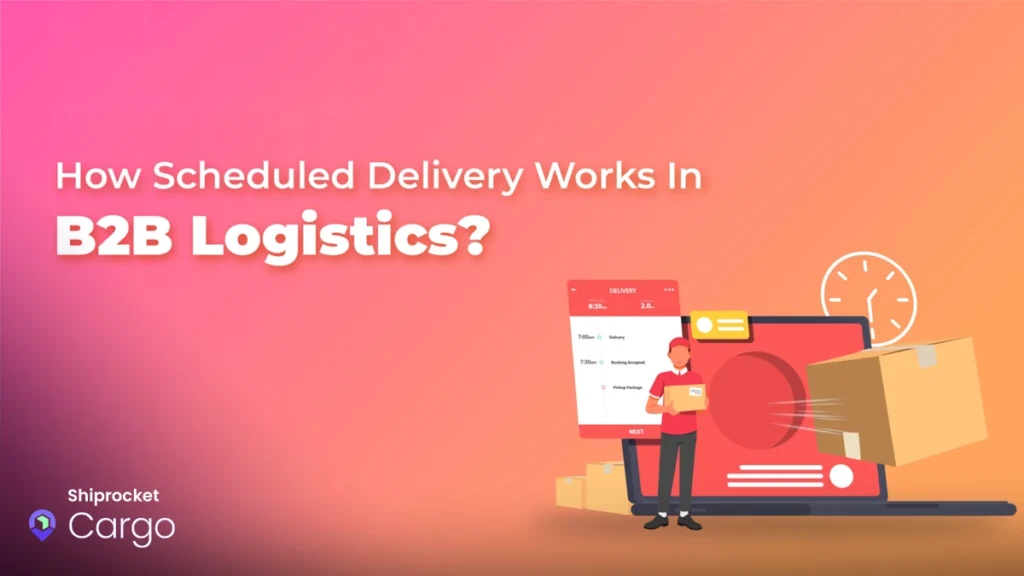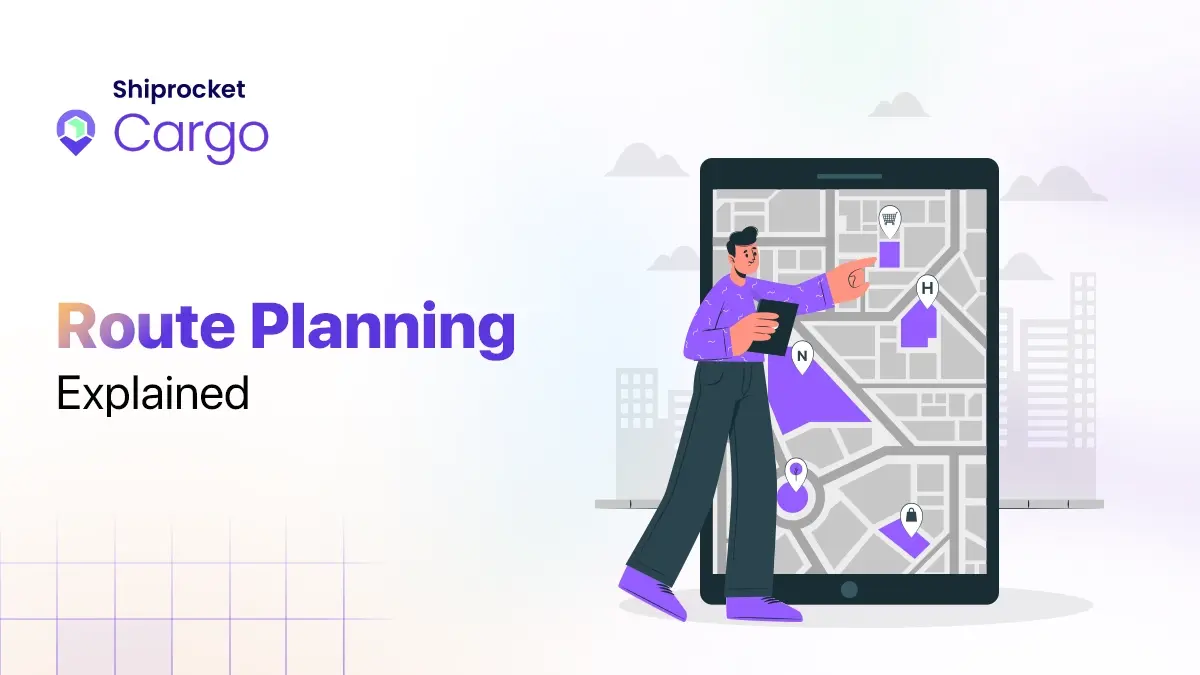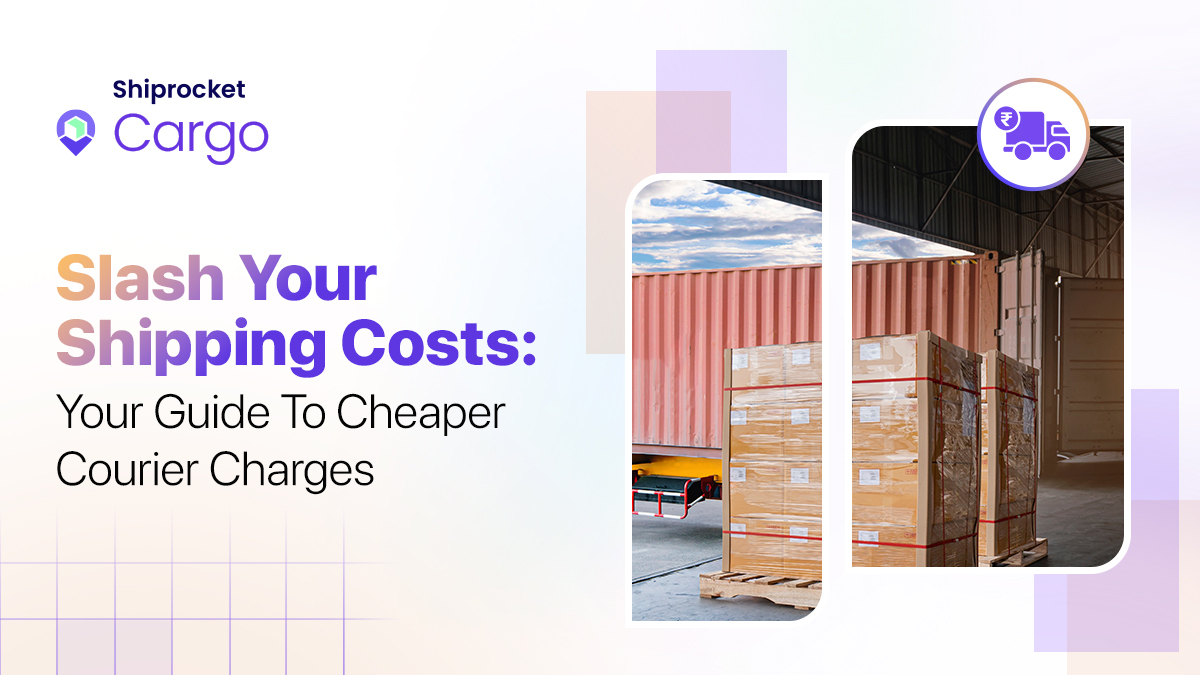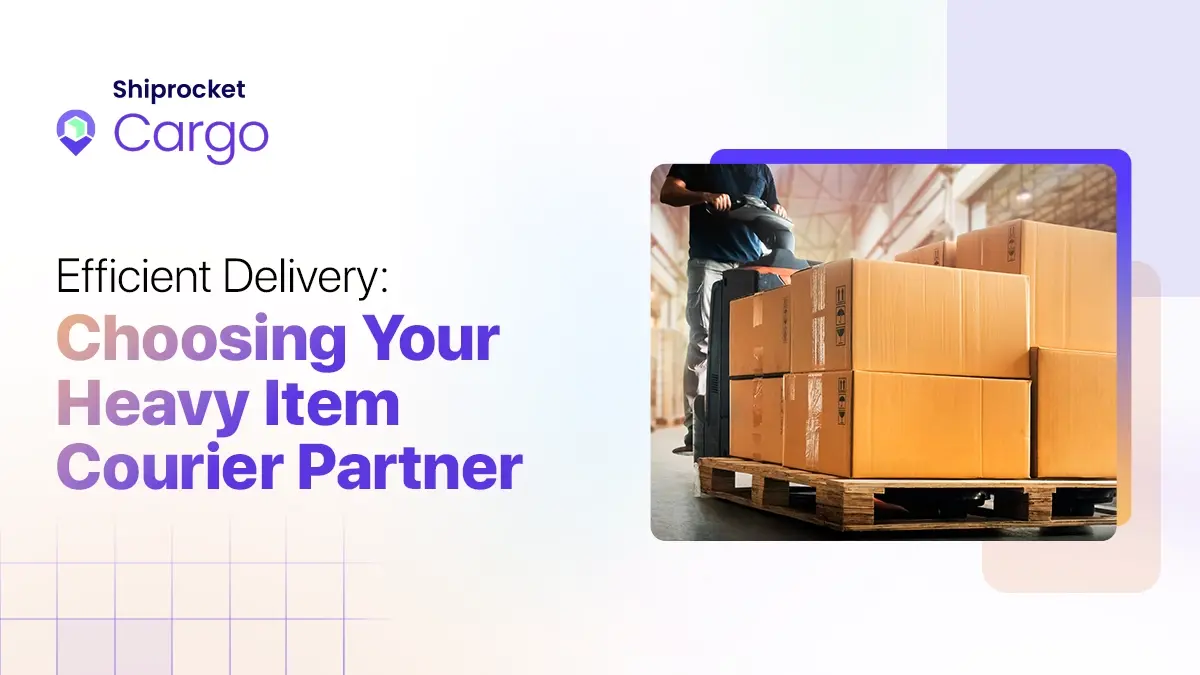Everything You Need To Know About Scheduled Delivery In B2B Logistics

Despite the growing popularity of same-day delivery, there are times when people would rather spend less money and receive their goods or services later. However, with today’s customer expectations, scheduled delivery can be quick and should always be convenient.
Businesses can develop a customized delivery schedule that meets their specific needs and requirements by working closely with their logistics provider. This can help improve customer satisfaction and strengthen supplier and customer relationships.
If you want to get your delivery to get scheduled then Connect with Shiprocket Cargo now!
What Is Scheduled Delivery?
A scheduled delivery is a type of fulfillment that allows business-to-business customers to choose the date and time they want their order to arrive.
Typically, customers could select a time of day for delivery (morning, afternoon, or evening). However, in recent years, businesses have allowed their b2b customers to select more precise delivery times, usually within time slots.
Customers no longer have to wait entire days for orders to arrive, which has greatly improved the delivery experience. Instead, they receive a more precise delivery window, allowing them to plan their day around their other daily activities.
Related: B2B Logistics Technology Trends to Lookout for in 2023
How Does Scheduled Delivery Work?
Scheduled delivery typically involves the following steps:
- Customers place an order and choose a specific time and date for their delivery. This can be done online, by phone, or in person, depending on the business and the service offered.
- The business receives and schedules the order for delivery on the chosen date and time. This may involve coordinating with other orders to optimize routes and ensure that all orders can be fulfilled on time.
- The business prepares the order for delivery and assigns it to a delivery driver or other staff member. This may involve packing the order, loading it onto a vehicle, and providing the driver with necessary instructions or information.
- The delivery driver picks up the order and sets off on the scheduled route. The driver may use a GPS or other navigation system to help find the correct address and avoid potential delays or problems.
- The driver delivers the order to the customer at the specified time and date. The driver may also need to collect a payment, obtain a signature, or provide other services as part of the delivery process.
Overall, the key to successful scheduled delivery is effective planning and coordination, which can help businesses to deliver orders on time and to the right location.
Why Should Brands Opt For Scheduled Delivery?
Although scheduled delivery necessitates planning and logistics, there are several reasons why b2b brands should provide it to their customers:
Enhanced Customer Experience
B2B brands often opt for scheduled delivery to enhance the customer experience. By offering predictable and reliable delivery schedules, B2B brands can help their customers plan and coordinate their operations more effectively. This can help customers avoid disruptions in their supply chain and improve their overall efficiency.
In addition, B2B brands that offer scheduled delivery can provide their customers with tracking information and real-time updates on the status of their shipments, which can help customers stay informed and in control. As a result, schedule delivery can help B2B brands provide their customers with a better, more seamless experience.
Predictable Delivery Schedules
Predictable delivery schedules are important for B2B brands because they allow businesses to plan and coordinate their operations around the expected arrival of shipments. This can help businesses avoid delays and disruptions in their supply chain, which can be costly and time-consuming.
It also allows businesses to manage their inventory levels better and avoid overstocking or running out of critical products. As a result, predictable delivery schedules can help B2B brands improve their supply chain efficiency and reduce operational costs.
Lower Operational Costs
Business-to-business (B2B) brands often opt for scheduled delivery to reduce operational costs. Scheduled delivery allows businesses to plan and coordinate their shipments in advance, which can help them save on transportation and labor costs. Additionally, scheduled delivery allows businesses to consolidate their shipments, reducing shipping costs. Scheduled delivery can also help businesses improve their supply chain efficiency, resulting in additional cost savings.
Related: Difference Between Full Truck Load and Part Truck Load in B2B Logistics
Efficient Fulfillment
When a brand establishes an ordering and delivery process, it eliminates many disruptions, invoices, payments, and phone calls.
Scheduled delivery enables company teams to focus on improving the more critical aspects of the business. In general, the shipping process and business can be much more efficient.
Disadvantages Of Scheduled Delivery
Scheduled delivery can present several challenges for businesses, including:
- Ensuring that the correct items are delivered to the correct location at the correct time
- Coordinating with multiple parties, such as suppliers, transportation companies, and customers, to ensure that the delivery process goes smoothly
- Managing inventory and tracking orders to ensure that the right items are available for delivery at the right time
- Dealing with unexpected delays or changes in the delivery schedule, such as traffic, weather, or other unforeseen events
- Ensuring the security and integrity of the items being delivered, particularly if they are valuable or sensitive
- Providing accurate tracking information and updates to customers to keep them informed about the status of their delivery
- Meeting customer expectations for timely and reliable delivery while also managing the costs and logistics of the delivery process.
These are just some of the challenges that businesses may face when it comes to scheduled delivery. It can be a complex and demanding process that requires careful planning and coordination to ensure it goes smoothly.
How Shiprocket Cargo Helps B2B Brands in Scheduled Delivery?
There are several ways that Shiprocket Cargo can help B2B brands in scheduled delivery:
- Offer a range of delivery options: By offering a variety of delivery options, such as same-day, next-day, or scheduled delivery, Shiprocket Cargo can help B2B brands meet their specific delivery needs.
- Use advanced logistics technologies: By utilizing advanced logistics technologies, such as real-time tracking and predictive analytics, a brand can improve the accuracy and efficiency of its delivery operations, helping B2B brands better plan and manage their delivery schedules.
- Provide excellent customer service: By offering excellent customer service and being responsive to the needs of B2B brands, a brand can help ensure that any issues or delays in the delivery process are resolved quickly and efficiently.
- Partner with trusted carriers: By partnering with trusted carriers and logistics providers, a brand can help ensure that B2B companies receive their products’ reliable and timely delivery.
Overall, Shiprocket Cargo can help B2B brands in scheduled delivery by being flexible, responsive, and reliable in its delivery operations, utilizing advanced technologies, and partnering with trusted carriers to improve the efficiency and accuracy of its delivery processes.
Conclusion
A scheduled delivery is a service where the customer can choose a specific delivery date and time for their package. This can be useful for ensuring that someone is available to receive the package or coordinating the delivery with other plans. Many courier and shipping companies offer scheduled delivery which can often be arranged through their websites or by contacting customer service.
Frequently Asked Questions
Q1. What is scheduled delivery?
A1. Scheduled delivery refers to the planned and coordinated delivery of goods at a predetermined time and place.
Q2. What are the challenges that B2B deliveries face?
A2. Some challenges B2B deliveries may face include coordinating with multiple parties, managing complex delivery schedules, dealing with unexpected delays or disruptions, and ensuring timely and accurate delivery. These challenges can be exacerbated by factors such as the size and complexity of the delivery, the distance involved, and the potential for adverse weather or other external factors.
Q3. What is B2B logistics and why is it important?
A3. B2B logistics refers to the transportation, warehousing, and distribution of goods between businesses. It is an important part of the supply chain process, enabling businesses to get their products to customers efficiently and effectively. Effective b2b logistics services can help businesses reduce costs, improve efficiency, and enhance customer satisfaction.



